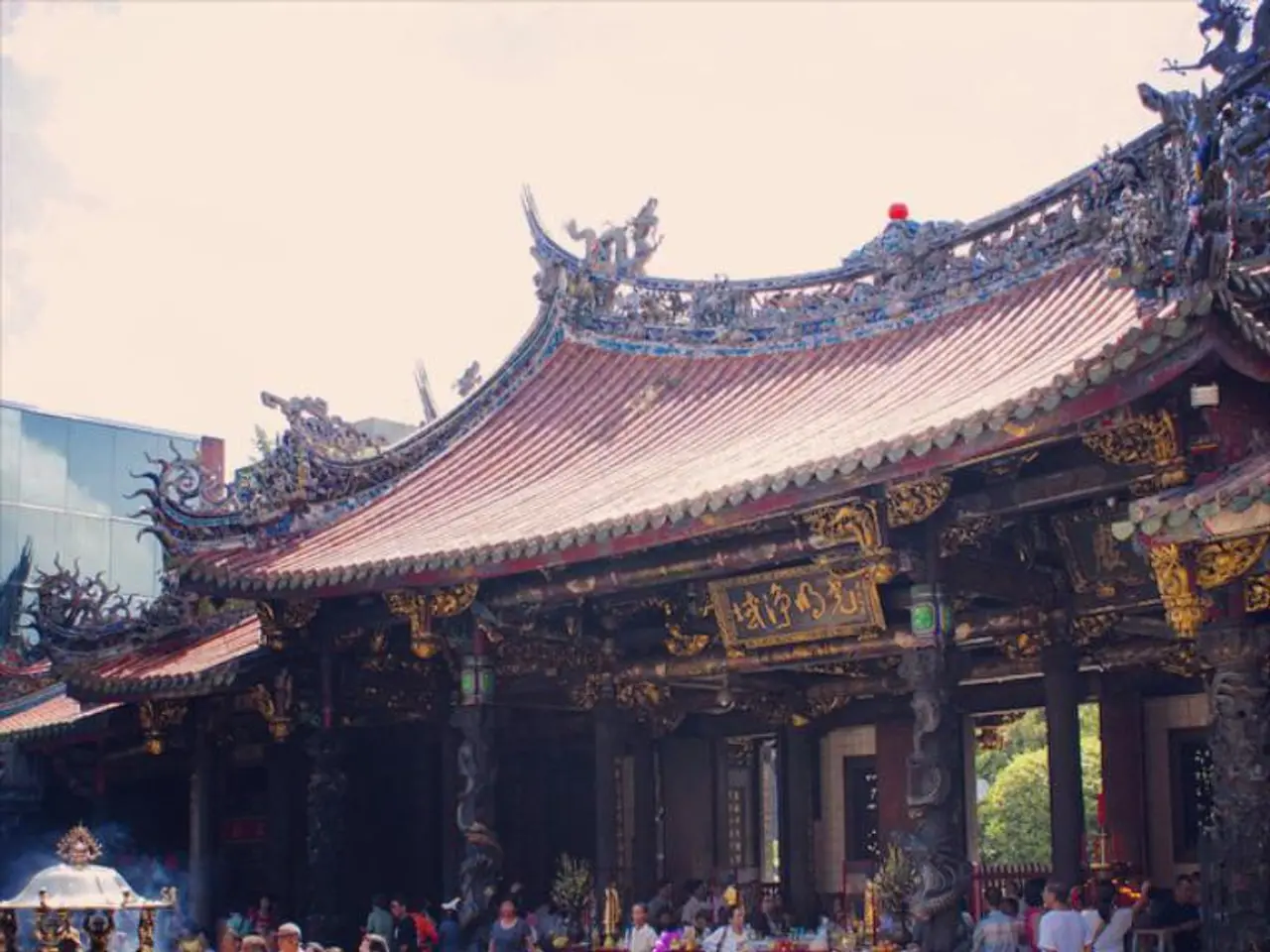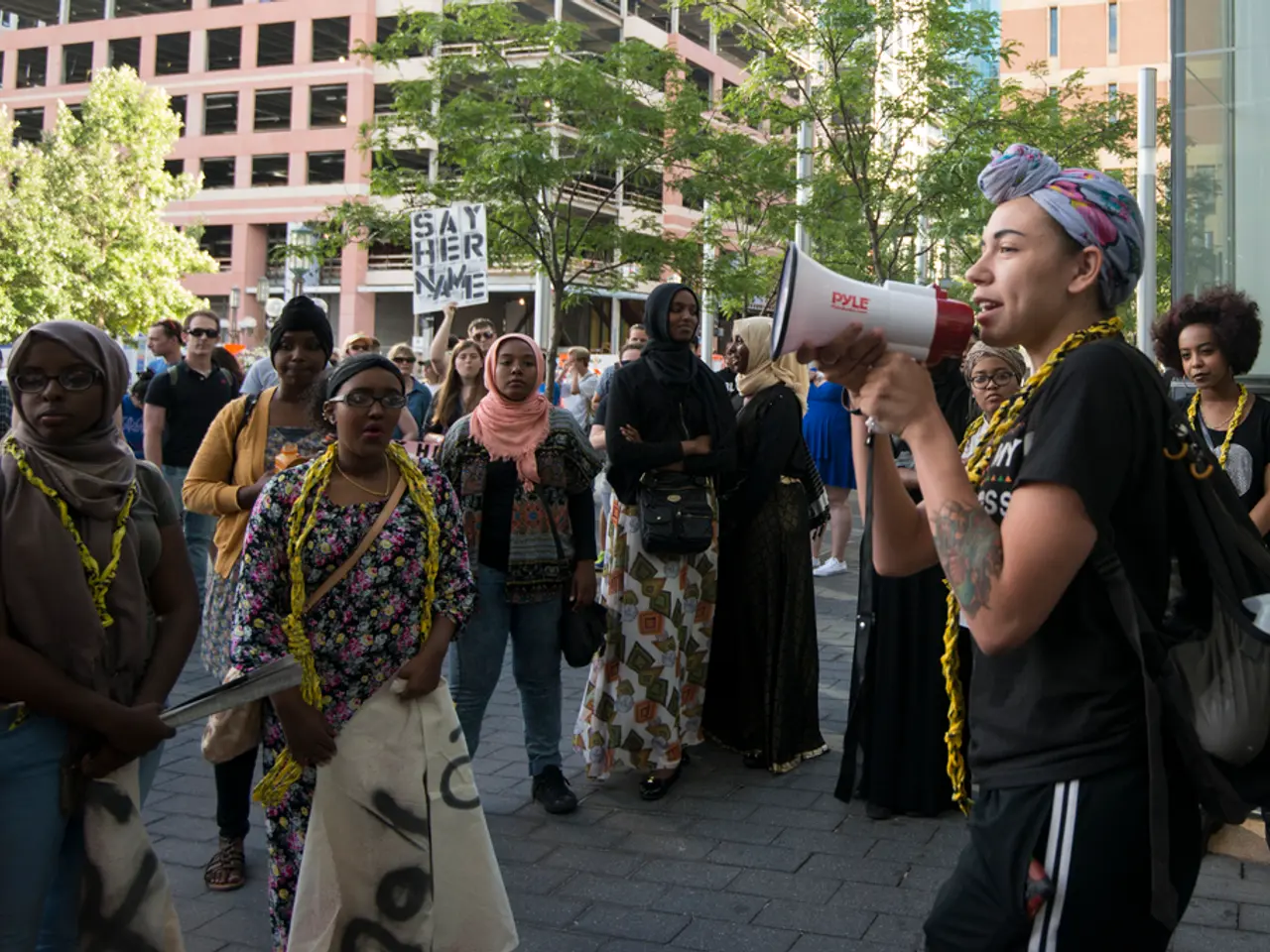Politician in Japan intensifies immigration discourse, asserting that foreigners disregard regulations and physically harm locals.
The Conservative Party of Japan, led by Naoki Hyakuta, is advocating for stricter immigration and refugee policies, focusing on protecting Japanese culture and citizens. The party, which won three seats in the House of Representatives election last year, has raised concerns about the growing number of foreign workers in the country, which surpassed 2 million in 2024.
Hyakuta, a former novelist and TV commentator, has been vocal about his opposition to what he sees as an influx of foreign workers willing to work for low wages, which he suggests is harming the Japanese economy and culture. He has criticized foreign burial customs and emphasized that foreigners should adhere to Japanese customs, stating, "When in Rome, do as the Romans do."
The party's stance has been met with controversy, with accusations of hate speech and xenophobia during electoral campaigns. Hyakuta has been criticized for remarks that suggest foreign workers "disregard Japanese culture, flout the laws, attack Japanese citizens, and pilfer their possessions."
The Conservative Party promotes stricter policies amid Japan's growing labor shortage. However, their rhetoric has raised concerns about the impact of their policies on the acceptance and experience of foreign workers in the country.
The party's approach contrasts with some other political factions seeking different balances between immigration and national identity, reflecting a broader debate in Japan over globalization, demographic challenges, and cultural preservation.
The Sanseito party, another minor opposition group, has also gained traction during the upper house election campaign under its "Japanese First" banner. The Sanseito party, with nationalist and anti-establishment views, appeals to conservatives.
The next House of Councillors election is scheduled for July 20, and the impact of these parties' policies on Japan's immigration landscape remains to be seen.
In summary:
| Aspect | Conservative Party of Japan Position | |--------|-------------------------------------| | Immigration/refugee policy | Stricter controls to safeguard Japanese culture and society | | Economic concern | Opposition to foreign speculative investment and low-wage foreign labor | | Cultural integration | Demand for adherence to Japanese customs and laws by foreigners | | Impact on foreign workers | Potentially restrictive policies amid increasing foreign workforce | | Public response | Provocative rhetoric criticized as hate speech, raising xenophobia concerns | | Labor shortage context | Policies may complicate addressing labor shortages despite growing foreign workforce |
These policies and rhetoric have influenced the discourse on immigration in Japan, potentially affecting the experience and acceptance of foreign workers in the country.
- The Conservative Party of Japan, led by Naoki Hyakuta, is advocating for stricter immigration policies and stricter refugee policies, focusing on protecting Japanese culture and society from what they see as an influx of foreign workers who are willing to work for low wages.
- The party's stance on immigration and cultural integration has been met with controversy, with accusations of hate speech and xenophobia during electoral campaigns and criticism for remarks that suggest foreign workers flout Japanese laws, attack Japanese citizens, and disregard Japanese culture.
- As the next House of Councillors election approaches, there is growing concern about how the Conservative Party's policies on immigration might impact the acceptance and experience of foreign workers in Japan, particularly amid a growing labor shortage.








